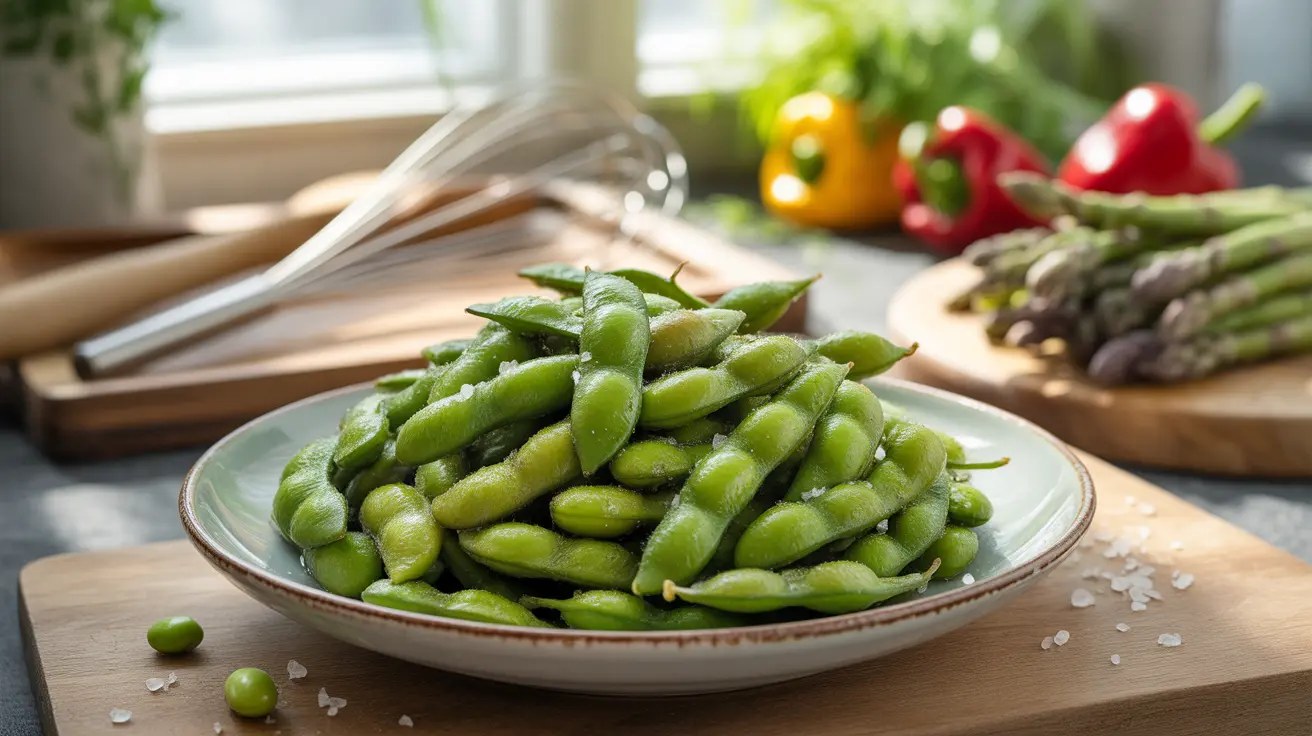For those following a ketogenic diet, finding plant-based protein sources that won't break your carb bank can be challenging. Edamame, the young green soybeans popular in Asian cuisine, has emerged as a potential option for keto dieters seeking nutritious alternatives to high-carb legumes.
In this comprehensive guide, we'll explore whether edamame can fit into your ketogenic lifestyle, examine its nutritional profile, and provide practical tips for incorporating these protein-rich beans into your low-carb meal plan.
Nutritional Profile of Edamame
Understanding edamame's macronutrient breakdown is crucial for determining its compatibility with a ketogenic diet. One cup (155g) of shelled edamame contains:
- 17 grams of protein
- 8 grams of total carbohydrates
- 5 grams of fiber
- 3 grams of net carbs
- 8 grams of healthy fats
With only 3 grams of net carbs per serving, edamame can be considered keto-friendly when consumed in moderation as part of a well-planned ketogenic diet.
How Edamame Compares to Other Legumes
Unlike most beans and legumes that are typically avoided on keto, edamame stands out for its favorable macronutrient ratio. For comparison:
- Black beans: 20g net carbs per cup
- Chickpeas: 32g net carbs per cup
- Lentils: 24g net carbs per cup
- Edamame: 3g net carbs per cup
Health Benefits for Keto Dieters
Edamame offers several advantages for those following a ketogenic lifestyle:
- Complete protein source with all essential amino acids
- Rich in fiber, supporting digestive health
- High in heart-healthy omega-3 fatty acids
- Excellent source of vitamins K and folate
- Contains beneficial compounds called isoflavones
Best Preparation Methods for Keto
To maximize edamame's keto-friendly potential, consider these preparation methods:
- Steam fresh or frozen edamame pods
- Season with sea salt and olive oil
- Add to low-carb stir-fries
- Include in keto-friendly salads
- Enjoy as a protein-rich snack
Portion Control Tips
While edamame is keto-compatible, portion control remains important. Stick to about 1 cup of shelled edamame per serving to maintain ketosis while benefiting from its nutritional profile.
Potential Considerations and Side Effects
Before incorporating edamame into your keto diet, be aware of these factors:
- Some people may have soy sensitivities
- Phytoestrogen content may be a concern for certain individuals
- Choose organic options when possible to avoid GMOs
- Consider rotating protein sources for dietary variety
Frequently Asked Questions
Can you eat edamame on a keto diet, or does it have too many carbs? Yes, you can eat edamame on a keto diet. With only 3 grams of net carbs per cup of shelled edamame, it fits well within most people's daily carb allowance for maintaining ketosis.
How many net carbs are in edamame, and how does that compare to other beans for keto? Edamame contains 3 grams of net carbs per cup, making it significantly lower in carbs than other beans. Most common beans contain 20-32 grams of net carbs per cup, making edamame a superior choice for keto dieters.
What are the health benefits of eating edamame, especially for people looking for plant-based protein? Edamame is an excellent source of complete protein, fiber, omega-3 fatty acids, and essential vitamins and minerals. It's particularly valuable for those seeking plant-based protein while maintaining ketosis.
What is the best way to prepare edamame to keep it low-carb and keto-friendly? The best ways to prepare keto-friendly edamame include steaming with salt, adding to low-carb stir-fries, or incorporating into keto-friendly salads. Avoid sweetened seasonings or marinades that could add unnecessary carbs.
Are there any side effects or concerns about eating edamame if you're following a ketogenic lifestyle? While generally safe, some individuals may experience soy sensitivities or concerns about phytoestrogens. It's also important to practice portion control and choose organic options when possible to maximize benefits while maintaining ketosis.




